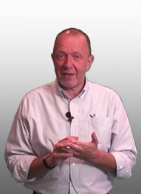
Working through Change
In many sectors, change is endemic. It might entail changes in the nature of the work, changes in technology, changes in terms and conditions, restructuring, downsizing, redeployments, relocations, and for some, sadly, redundancies. What was once a period of upheaval in between times of relative stability is now more and more frequent.
Change is challenging not only because it means learning, relearning, and getting used to new ways of working. This would be challenge enough. However, the process is made harder for many by psychological impact of change. At times when ideally we would be learning and working at our best, very often, people can feel anxious, angry, unsettled and demotivated in the face of change.
The programme starts with The Organisational Iceberg Model emphasising that change involves both TASK and human PROCESS elements.
It especially explores the human process side of change, and the psychological impact it can have, explaining how change can provoke feelings of anxiety, loss and fear outside of our conscious awareness, and how these can impact on our work.
The course introduces ways of helping our logical thinking mind to stay in control, so that we can anticipate / plan for transitions. It offers strategies to successfully work through change, and accelerate the process of adaptation by:-
- learning about and adapting to changes to the task
- identifying and dealing with endings and transitions
- getting and giving support
- managing the way we respond emotionally, to stay resourceful and resilient
Your Instructor

Chris has been fascinated by people, what makes us 'tick', and what affects our behaviour and performance, since his teenage years. He has spent 50 plus years enthusiastically exploring and studying personal effectiveness, wellbeing, resilience, relationships. With over 25 years experience in personal development, coaching, management training, and consultancy, Chris has looked for the 'difference that makes the difference' to find simple models and effective techniques and strategies that are easily learnt, and work in practice.
Chris is a certified NLP trainer and Master Practitioner, and has qualifications in organisational analysis & behaviour, psychology and social work, and He lives in Lancashire, UK, with his wife Glenda, who is equally passionate about people, learning and wellbeing.
Course Curriculum
-
StartIntroduction to Section 1
-
StartTask and Process at Work - The Organisational Iceberg (9:52)
-
StartActivity: Effects of Change on the Organisational Iceberg
-
StartQuiz: Check your Understanding of the Organisational Iceberg
-
StartEffective Learning and the Learning Cycle (1:28)
-
StartSection 1 - Reflecting on Learning, Using the Content
